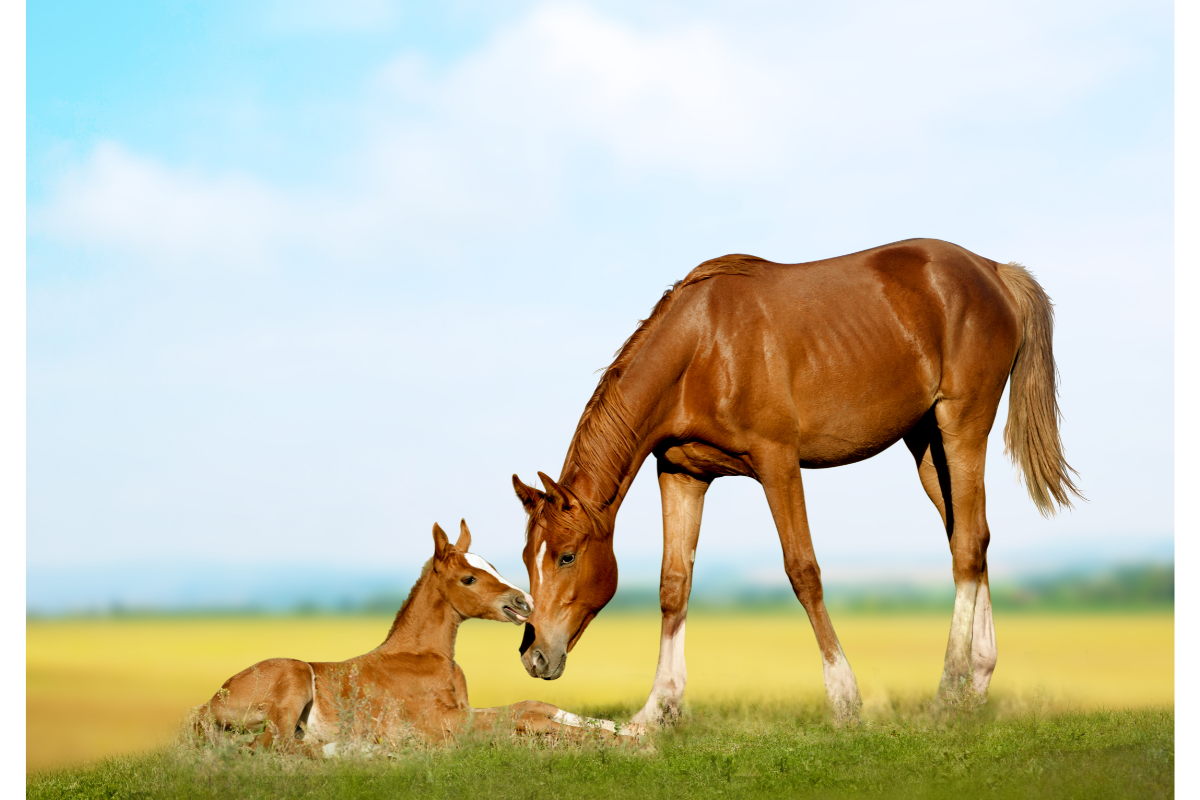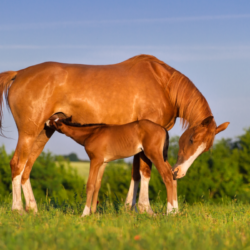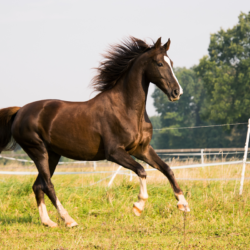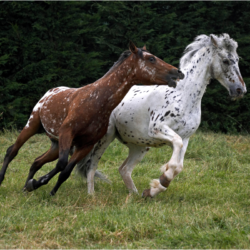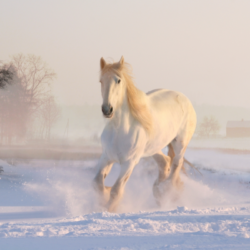Ovarian pain in mares is a frequent issue in equine veterinary medicine, particularly during oestrous cycles. This pain, which is often linked to the increase in follicle size and ovulation, can cause discomfort, affecting both the animal’s well-being and its performance. Identifying and alleviating these pains is crucial to maintaining the mare’s general health and quality of life, particularly in the sporting and reproductive fields.
What is an ‘ovarian’ mare?
An “ovarian” mare presents pain linked to hormonal cycles, particularly during heat and ovulation. This pain is caused by the growth of the follicles, which pull on the ovarian ligament due to their increased weight. The mare may then show signs of discomfort such as bucking, tail wagging or mild colic. These symptoms appear cyclically and disappear after ovulation.
The follicles, under the influence of hormones such as oestrogen and progesterone, grow during the first 15 days of the cycle, sometimes reaching 5 cm in diameter before releasing an egg. This process can cause pain, particularly due to traction on the ligaments during physical effort. Ovarian mares often suffer from back pain and posterior irregularity. Although these symptoms are compatible with a normal cycle, they may indicate more serious disorders, such as cysts or tumours.
Conditions such as granulosa tumours or haematomas can also cause ovarian pain. These tumours, although not very invasive, considerably increase the size of the ovary and alter the behaviour of the mare, who may adopt stallion-like or nymphomaniac attitudes. Diagnosis is based on ultrasound and hormone levels, and treatment is generally surgical.
What are the traditional treatments?
Traditional treatments for an ‘ovarian’ mare aim to reduce or eliminate heat and its undesirable effects. The most common option is the daily administration of a progestogen hormone treatment, such as Regumate. This treatment, equivalent to contraception, blocks heat by inhibiting ovulation. Although effective and authorised for use in competition, its main drawback is its high cost and the need for regular administration.
Vaccination enables temporary chemical castration to be induced at lower cost. Its action lasts for around six months, while reducing the constraints associated with daily treatment. However, this method is still banned in competition and can cause painful reactions at the injection site. The product available in France does not specifically target horses.
Infiltration of the ovarian ligament also relieves ovarian pain by temporarily blocking the transmission of pain. This less common procedure involves administering an anaesthetic or anti-inflammatory product to block the pain caused by traction on the ligament during heat.
Other techniques include hormone treatments to induce or block ovulation. Mechanical methods are also used, such as placing glass beads in the uterus to prevent ovulation by continuous stimulation. Finally, vulvoplasty, a surgical procedure that involves suturing the vulva, limits infections and improves the mare’s reproductive performance in specific cases. A veterinary surgeon must always carry out these methods under strict supervision and in compliance with competition regulations
How can you soothe your mare naturally?
Natural treatments for an ovarian mare aim to relieve heat-related pain and improve her general well-being. An osteopath or physiotherapist can help reduce muscle tension and lower back pain caused by pulling on the ovarian ligaments. Balneotherapy, using therapeutic baths, also helps to soothe inflammation and reduce pain.
Clay and seaweed wraps are also used for their anti-inflammatory and soothing effects. These external treatments act locally to relieve ovarian tension and improve blood circulation.
Phytotherapy is a complementary approach that uses plants with antispasmodic, anti-inflammatory and hormone-regulating properties. These plants help to relieve symptoms while promoting a better balance in the hormonal cycle.
Chamomile and lemon balm are renowned for their calming and antispasmodic properties . They soothe cramps and muscular tension during heat periods. They also help reduce stress and anxiety in sensitive mares.
Chaste tree (Agnus Castus) is particularly effective at regulating hormones. By mimicking progesterone, it reduces the intensity of heat and reduces behavioural symptoms such as irritability.
Marjoram, with its anti-inflammatory effects, soothes uterine contractions and muscular tension. It therefore improves the mare’s comfort. Hops, with its sedative properties, reduces irritability and improves sleep quality.
Plants such as shepherd’s purse and yarrow help to regulate the ovarian cycle by limiting the excessive release of oestrogen. This reduces the pain associated with heat. These solutions are often offered in the form of food supplements, administered daily for effective relief without the need for aggressive medication.

